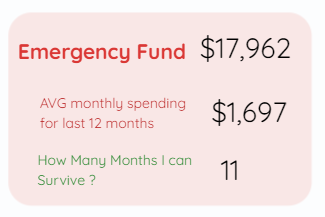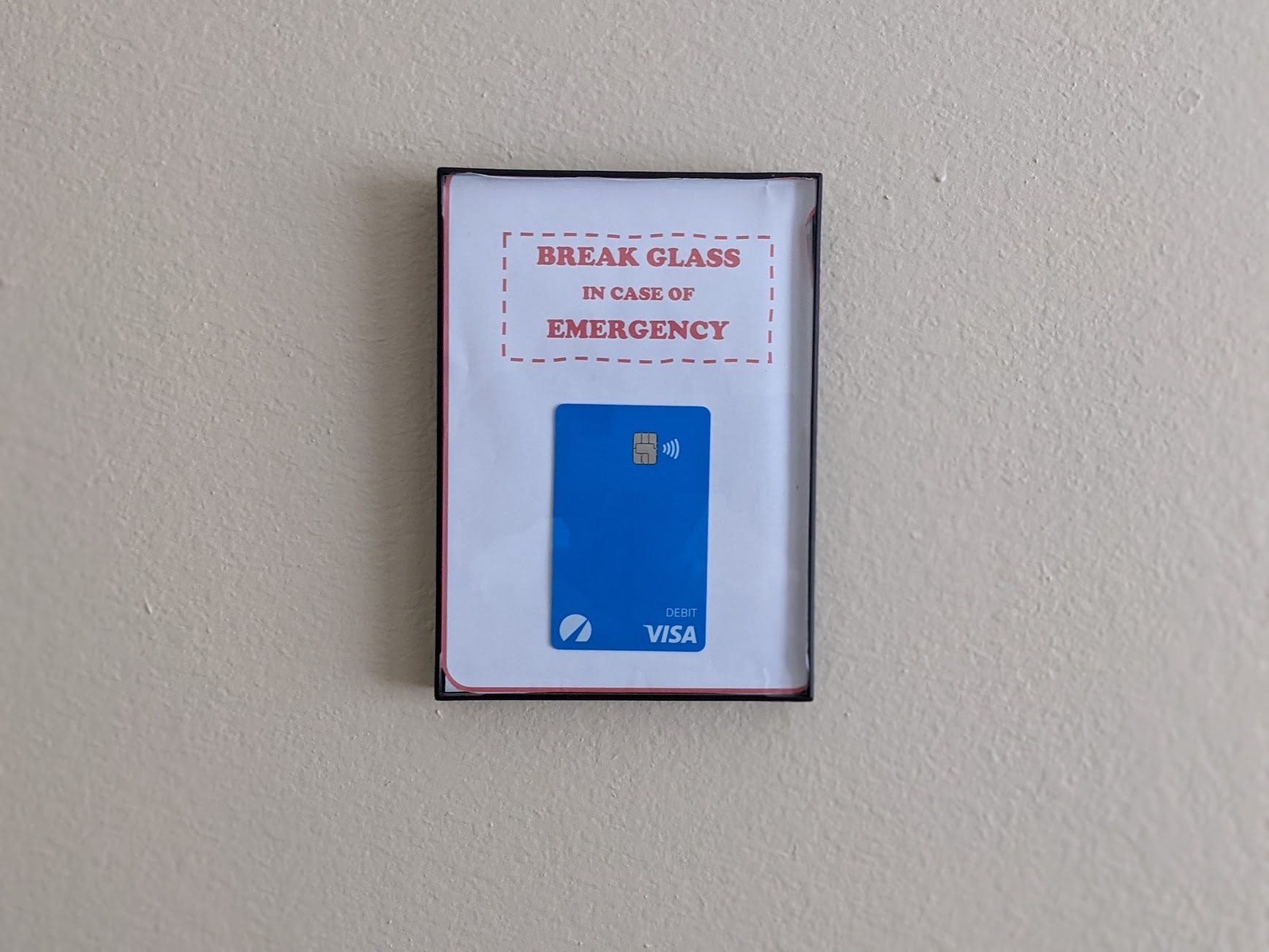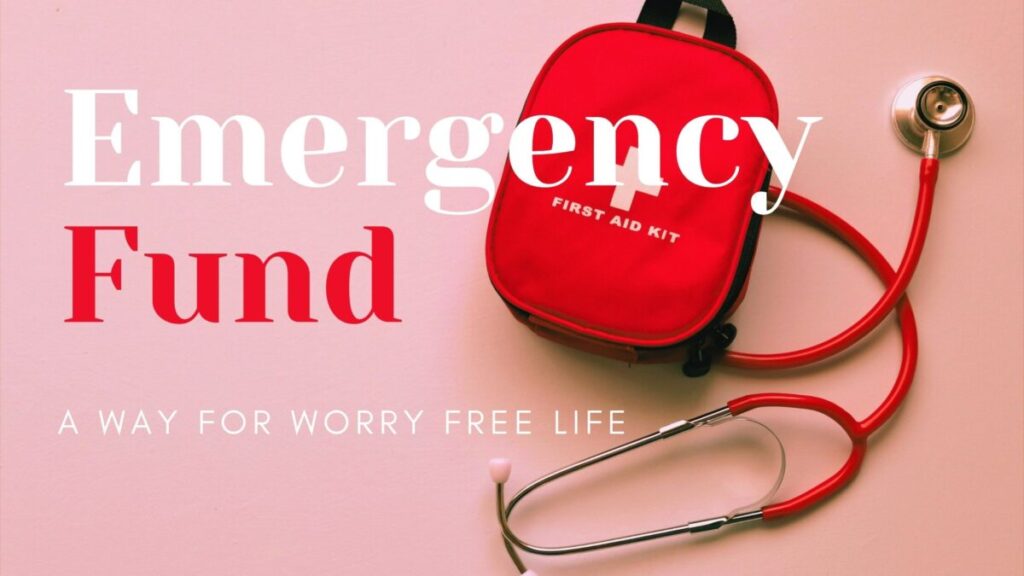What is an Emergency?
Imagine you lose your livelihood, your job, how long would you be able to survive? Would you consider that an emergency? Most of us know what an emergency sounds like but very few of us have experienced it first hand. So let’s start with the basics, an official meaning of the word emergency.
An emergency is “a sudden serious and dangerous event or situation that needs immediate action to deal with it” (Oxford). For me, losing my job was an emergency and the bad part was I had no action plan to deal with it.
The most common emergencies are medical and financial ones. Medical emergencies are a little hard to predict and we have less control over but financial ones we totally do.
What is a Financial Emergency?
Anyone can guess what a financial emergency is, to me, a financial emergency is when you beg for money from either your relatives, friends, or banks to cover the unexpected expenses because you don’t have any.
Financial emergencies are when you start relying on your credit cards to cover your monthly bills because you don’t have the means to make money.
Financial emergencies to me are when you can’t sleep at night because you fear if you lose your job tomorrow you might not be able to pay your rent, mortgage, car payment, and whatever lifestyle you have chosen to live.
But fear not, you don’t have to lose your sleep, if you start building your emergency fund right now.
Why you must have an emergency fund?
Only 40% of Americans can pay unexpected $1000 bill, based on the survey conducted by bankrate.com. That number to me is unbelievably low because the average rent for a 1-bedroom apt in the area I live is almost $1000.
To start, why you must have an emergency fund is to keep the roof over your head. An emergency fund should help you cover your rent and mortgage payment for few months.
Your credit cards are not an emergency fund, your savings will help you stay away from credit cards and the horrendous interest they carry along with them.
Consider your emergency fund as your own bank, from which you can loan the money so that you never will have to ask your relatives or friends. Ask for emotional help from your loved ones but not the money.
An emergency fund is a way to live a worry-free life. Use your emergency fund for only true emergencies, let’s cover what are those next.
Understand the true financial emergencies
Once you have your emergency fund created and funded, don’t be tempted to spend it on the a phone or a car. Understand the true emergencies, anything which is expected like money for your car service is not an emergency but if you get into an accident then it is.
What are true emergencies?
- Unexpected medical bill
- Losing a job (either you or your spouse)
- Unexpected travel
- Anything your insurance won’t cover
What are not emergencies?
- Something on sale (A phone, TV, that shiny bag )
- A weekend trip with your friends
- I Also, don’t consider my emergency fund for house down payment
- New car on sale
How much you should have?
You should have at least 3 to 6 months’ worth of savings to cover all your expenses. All of your expenses, your rent, food, electricity, phone bill, car payments, childcare, and more.
Three to Six-month savings isn’t standard but the recommendation based on all the financial books, you can read here, Best Books on Money Management.
I personally think it depends on how stable your job is. If you have stability in your job and if you have no savings to start with then three months must be your target. If you are not in a stable job then six months is great. Once you have six months of fund ready, add at least 3-5% of your income into it.
TIP: How do I calculate my survival money
- Track your expenses for the last 12 months
- Keep your Emergency Fund separate from your spending accounts
- Calculate your monthly average spending for the last 12 months
- Divide your emergency fund by your monthly average spending
- There, you will find how many months you can survive with no income

Where should you keep the money?
Your emergency fund must be in a liquid asset, which you can access very easily. Don’t rely on your investments (stock or property) as your emergency fund, investments may fall with the market fluctuations.
High-yielding saving accounts are advised by financial institutes (discover.com) for an emergency fund. Some people keep it in cash too, whatever works for you, Idea is to keep it accessible and not invested.
Personally, I went with a savings account at a bank that is separate from my spending account. I consider this account my true emergency account, call it my emergency bank, I even put the debit card framed to remind myself that why should I use this account. (Stole the idea from the book The Total money makeover.)

Who all should have access to it?
The people you trust the most should have access to your emergency fund. If you are married then your spouse, if you are single then your parents or siblings.
In in the event of emergency, if you are physically not able to access your money for whatever reasons then someone else (hopefully the person you are closed to) must be able to access the fund.
TIP: How to Quickly build your emergency fund
If you have a means of earnings then you already have a head start.
To build my three-months worth of emergency fund, I started saving at least 30-40% of my income in a savings account. I changed the distribution on my salary payment portal to send 30-40% of income in the emergency savings account. I am sure if you are employed then you should have control over where to get paid too.
Once my three-month emergency fund was ready then I reduced the income distribution to 20%. It took almost eight months to build my six-month survival fund.
Once you have fully funded six-month emergency savings then keep adding 3-5% of your income and forget about it until you really need it. Here are few steps to get your emergency account started.
Steps to fund your emergency Account
- Open a high-yielding Savings account (You can start here) (Note: It must be separate from all your other spending accounts)
- Distribute 30-40% of your income to build three months of savings
- Reduce it to 15-20% to build six months of savings
- Reduce it to 3-5% to keep the emergency fund growing
- Relax and enjoy knowing that you have a backup to take care of you and your family
Conclusion
Emergencies are real and unexpected events will occur, that’s the nature of life. When things go bad they can quickly turn worst. The question is are you ready for it?
There are so many things that we don’t have control over but financial emergencies are not one of them. If you are earning an income then you have all the power to secure your financial future. Creating my emergency fund and not worry about the uncertainties of tomorrow was the best decision I took.
How many times my emergency fund saved me you might ask, too many times. I tapped into my emergency fund when I had to reschedule my international air ticket a day before my travel because I got sick, when my son had to go through emergency surgery, and when I got into a small car accident and didn’t want to use insurance.
You can spend all the money you have now or save a small amount to secure your financial future. Having some backup is always good than not having one. When things go bad nobody likes to think about money so build your emergency fund and not worry about it ever.
Please share if you have any tips and ideas to keep growing your emergency fund.





2 thoughts on “Emergency Fund – A way of worry free life. (What, why, and how)”